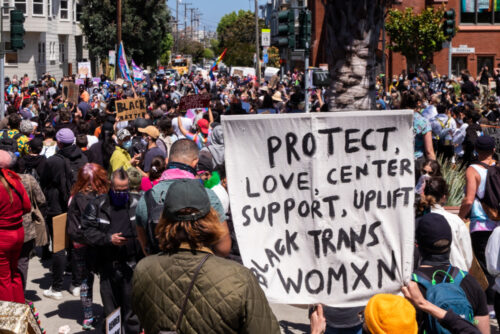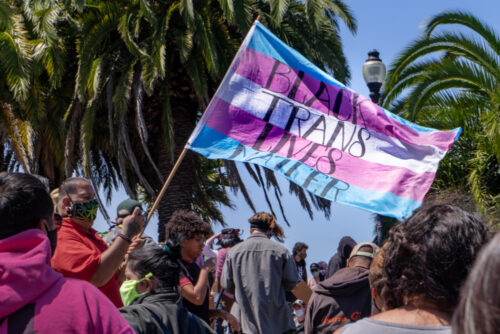Transgender Athletes Win Victory in Federal Court
Starr A. Wilson
swilson3@mail.ccsf.edu

City College transgender athletes can now compete in sports of the sex they identify with, according to a recent ruling by the federal court.
Betsy DeVos’s threat to ban transgender athletes from participating in college sports in Connecticut was overturned in June.
Three high school girls represented by their mothers, filed a lawsuit against the Connecticut Interscholastic Athletic Conference (CIAC) saying their policy is a violation of the Title IX act that bars discrimination on the basis of sex.
Their argument is that boys will displace girls in competitive track events.
The CIAC stated that the policy was implemented in 2013 and is compliant with state and federal law.
The CIAC further stated that “Connecticut law is clear and students who identify as female are to be recognized as female for all purposes – including high school sports. To do otherwise would not only be discriminatory but would deprive high school students of the meaningful opportunity to participate in educational activities, including inter-scholastic sports, based on sex-stereotyping and prejudice sought to be prevented by Title IX and Connecticut state law.”
California has two separate laws affecting transgender individuals. First, the Education Code allows transgender athletes to compete based solely on their gender identity.
Second, the Unruh Civil Rights Act classifies public schools as business establishments and provides “equal accommodations, advantages, facilities, privileges, or services” to “[a]ll persons . . . no matter what their sex.”
Third, the California Interscholastic Federation “clarified that hormone therapy (and more importantly, surgery) for transgender student-athletes was unnecessary” due to public health concerns.
In a dissenting opinion, Judge Alioto was quoted in the June 15 Star Tribune as saying: “The Court tries to convince readers that it is merely enforcing the terms of the statute, but that is preposterous. Even as understood today, the concept of discrimination because of ‘sex’ is different from discrimination because of ‘sexual orientation’ or ‘gender identity.'”

Roger Brooks, as attorney for the Alliance Defending Freedom and counsel for the plaintiffs, said, “Around the nation, districts are going to want to be reading this, because it does have legal implications. It is a first decision from the agency charged with enforcing Title IX addressing the question of whether males on the playing field or on the track are depriving girls of opportunities consistent with Title IX.”
The ruling took place on June 15, 2020 by a 6-3 vote.
The decision names the civil rights office as well as the districts the girls competed in. The office says it will “either initiate administrative proceedings to suspend, terminate, or refuse to grant or continue and defer financial assistance” to the conference and those districts or refer the cases to the U.S. Department of Justice.
Chase Strangio, who leads transgender justice initiatives for the American Civil Liberties Union’s LGBT and HIV Project said, “Trans students belong in our schools, including on sports teams, and we aren’t backing down from this fight.”
The lawsuit centers on two transgender sprinter athletes, Terry Miller and Andraya Yearwood. These athletes have frequently outperformed the other athletes since 2017, whereupon the ACLU attorneys representing them have argued that both athletes undergo hormone treatments, which have placed them on equal footing with other cisgender athletes.
Connecticut is one of 18 states that allow transgender students to participate in sports that they sexually identify with as does California. Still, there is the feeling that transgender athletes competing with cisgender athletes gives transgender athletes an unfair advantage.
Juan Fernandez, CCSF Queer Resource Center coordinator, said, “This is an important step towards structural change, specifically in regards to the protection and representation of Trans and Queer communities. The college looks forward to re-evaluating its athletic policies in the near future.”
A representative from the Board of Directors of the San Francisco Track and Field Club added: “We are excited to see the federal court clearly signaling that discrimination based on sexual orientation and transgender status is unacceptable and illegal. The fight for equality continues full steam ahead. We call on the Trump administration to see the writing on the wall and immediately rescind all of its discriminatory policies, particularly those harming transgender athletes. Until then, we will continue fighting for a world where everyone is able to live without fear of discrimination.
